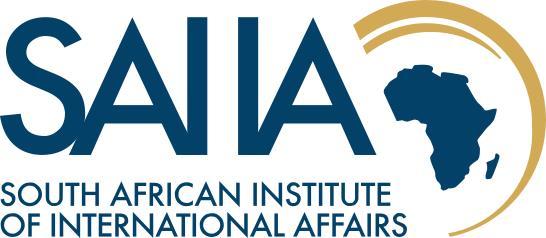Partnership for Growth and Development - Foundation Office South Africa
Expert conference
Details
09h00-09h30Registration
09h30-09h45Welcome and Introductory remarks
Elizabeth Sidiropoulos, National Director, SAIIA
Dr. Werner Böhler, Resident Representative, KAS South Africa
09h45-11h00Keynote address: Co-operation in growth and development
The EU’s adoption of the Africa Strategy in 2005, and the decision in May 2006 to work with the AU to develop a joint EU-Africa strategy has energised the cooperation between the two bodies in developing strong partnerships. The EU strategy highlighted a number of possible instruments for working on ameliorating the security, economic and political environment in Africa. This session aims to set the scene for subsequent discussions during the day by reflecting on the initiatives for growth and development, their potential means of implementation and the actors to be involved.
Optimising EU instruments for development in Africa
Michael Gahler, MdEP, Development Committee
Towards a Joint EU-Africa Strategy: A way forward
Ambassador Gert Grobler, DDG Europe and Americas, DFA
Discussion
11h00-11h30Tea
11h30-13h30Session 1: Opportunities for addressing business constraints
Apart from the resource-rich countries in Africa, such as Angola and Nigeria, that have been able to attract large investments into their oil or gas sectors, the key challenge of African countries is to create the climate that can stimulate both domestic and foreign investment into their economies. The business constraints may include among others weak regulatory systems, poorly maintained (or non-existent) infrastructure, widespread corruption, lack of credit facilities for domestic investors, and for foreign investors insufficient knowledge of the particularities and opportunities in different African countries. A number of development programmes funded either bilaterally or through the EC focus on improving the business climate and providing opportunities for the emergence of small and medium enterprises. More recently the Investment Climate Facility was launched. Clearly there are points of engagement both at governmental and business-to-business level. How effective is aid in addressing business constraints in African countries? What are the kinds of ‘low-hanging fruit’ that can be picked and ameliorated by governments in addressing supply-side bottlenecks, without waiting for the ‘big-bang’ approach? How can the skills and expertise of businesses and chambers in Europe be harnessed to assist in this regard?
Linking aid and business development
Ambassador Harro Adt, Federal Republic of Germany
Opportunities for business-to-business co-operation: A view from Southern Africa
Noko Murangi, Director, Trade, Industry, Finance and Investment, SADC Secretariat
The role of the private sector in achieving the Millennium Development Goals within the framework of EU-Africa co-operation
Dr Kasirim Nwuke, Chief, MDGs/Poverty Analysis and Monitoring Section, United Nations Economic Commission for Africa
Opportunities for business-to-business cooperation: A View from Europe
Matthias Boddenburg, Chief Executive Officer, Southern African-German Chamber of Commerce and Industry (AHK)
Discussion
13h30-14h15Lunch
14h15-15h45Session 2: Public-Private Partnerships in post-conflict reconstruction
One of the key challenges in the immediate post-conflict environment in any country is to secure the ceasefire in the transition and the lead-up to elections, as well as in the period after that. Apart from the political imperatives of keeping all combatants committed to the peace agreement by ensuring that the process is fair and transparent, there are also broader initiatives that help to set the foundation for the economic rebuilding of the state and the creation of economic opportunities for citizens. These relate to the role that the private sector may be able to play in such circumstances in support of the political processes. However, for the private sector to be involved might require a close working relationship with the state actors, including public guarantees from governments regarding capital investments. Are such partnerships realistic given the high risks associated with business ventures in states/regions emerging from conflict? When would be the most opportune time for pursuing them – In the immediate post-ceasefire phase or in the post-transition phase? If so, how would such partnerships be formed, and what would the undertakings be of governments? Equally important, who would determine the critical sectors in which investments should take place?
The role of the private sector in rebuilding societies, A view from South Africa
Member of Parliament of the RSA (tbc)
Experiences from Africa: Southern Sudan
Marietha Dos Santos, United Nations Mission in Sudan (UNMIS)
Experiences from Europe: The former Yugoslav Republics
Miroljub Labus, former deputy prime minister of Serbia and professor at the University of Belgrade
Discussion
15h45-16h00Tea
16h00-17h15Session 3: The EU and South Africa: Trilateral partnerships for development
This session aims to explore South African and European perspectives on cooperation in development partnerships in other countries in the continent, what has been billed as ‘trilateral partnerships’. South Africa is de facto a donor in Africa, and government ministries are beginning to consider the need for a coherent policy on development assistance. Such a move is not without its political sensitivities, given perceptions about South Africa as a regional hegemon and the possibility of repeating some of the mistakes of Northern aid agencies. Nevertheless, the opportunities presented by such cooperation between the EC, its member states and South Africa are vast if both parties strive to avoid the potential pitfalls referred to above. In its engagement in post-conflict reconstruction South Africa has brought its own political and economic experience of transition to bear. As an African country such experience is regarded as having greater applicability to local conditions than experiences from the North. What are the examples to date in this regard? What areas of trilateral cooperation can be realistically pursued? How would such cooperation ensure buy-in from the host country and mitigate political sensitivities in the rest of the continent?
Opportunities for trilateral partnerships
Hubert Perr, Delegation of the European Commission to South Africa (tbc)
South Africa as a donor in Africa: Challenges and opportunities
Shaheed Rajie, International Development Co-operation, National Treasury
Discussion
17h15-17h30Closing
This is a draft programme is provisional and subject to change without notice.



